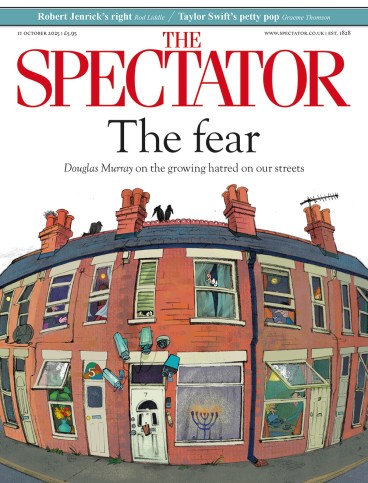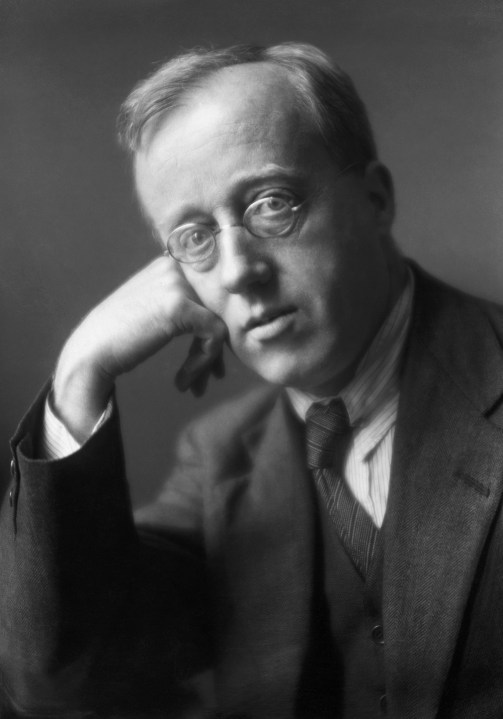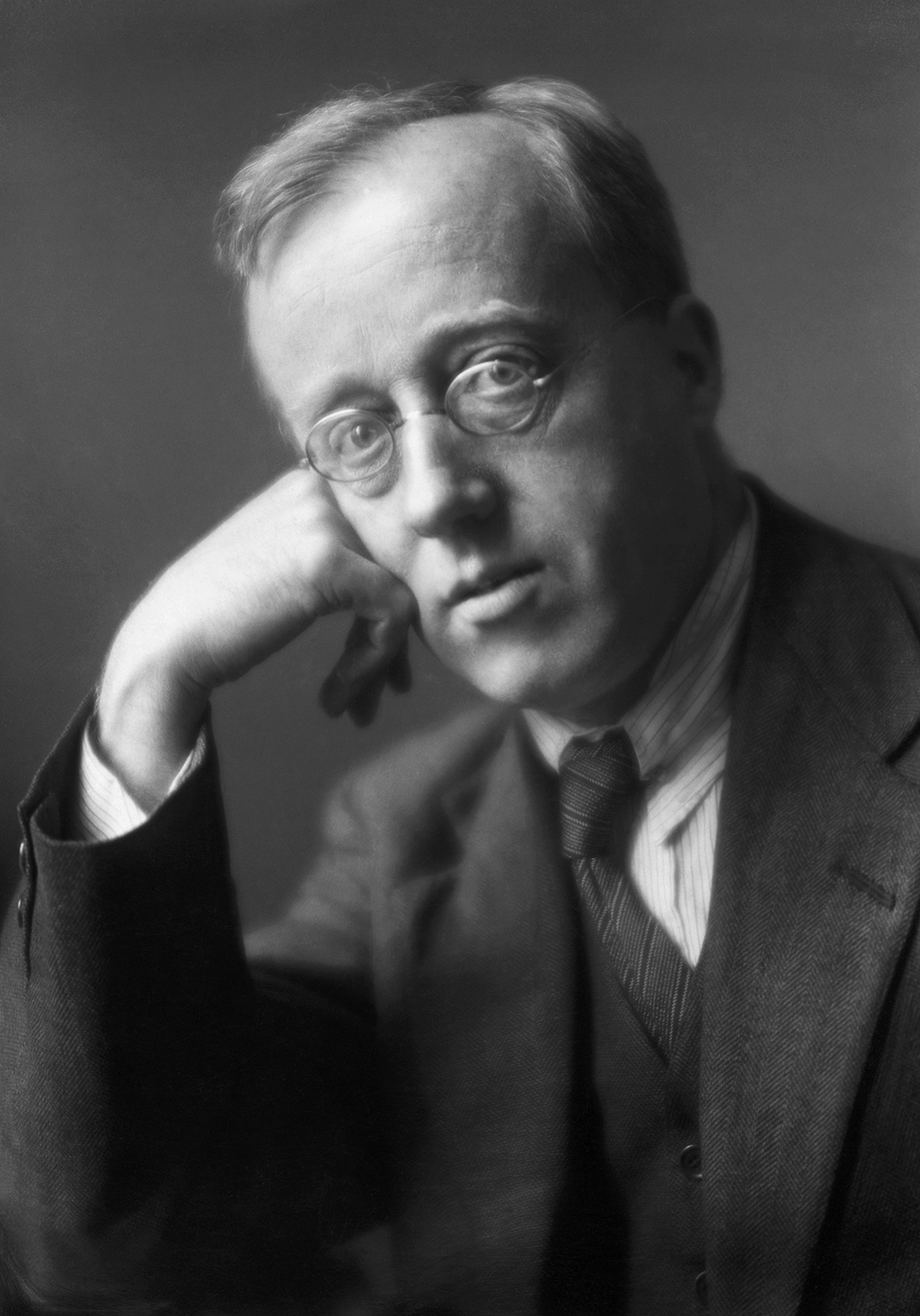
Irreverent, outspoken and unfailingly opinionated, with knowledge as broad as his vocabulary, Robin Holloway is exactly the person you’d want to sit next to at a concert. The warmest of interval chardonnays would spontaneously chill and fizz at his exhilarating put-downs; the music would be brighter, clearer and more compelling for his idiosyncratic analysis. But travel companions are a different breed. Would you set out on an odyssey through the history of western music with him as your sole guide and companion?
Holloway is a fixture of British classical music – as a significant composer, teacher of other yet more significant composers and, since 1975, one of the longest standing members of Cambridge University Music Faculty. His experience and influence span a repertoire substantially shaped over the past century by mentors, friends, colleagues and pupils; he is embedded, implicated in the history of music he now – after 50 years of tutorials, essays, articles and compositions – finally writes. Tell me about a complicated man.
But don’t be fooled by the affiliation. Holloway is a longstanding critic of the worst conventions of academic writing. While acknowledging his admiration for the histories of Donald Tovey, Charles Rosen and Richard Taruskin, he here shuns a dutifully scholarly history in favour of an ‘appreciation’ that is deliberately partial and personal. ‘My aim,’ he writes, ‘is to offer an invitation to the glorious long voyage of western classical music.’
And a long voyage it certainly is – 14 centuries of it, starting with medieval monody c. 600 and finishing (narratively, if not strictly chronologically) with Gyorgy Ligeti. If that has you searching for the gangplank, Holloway offers reassurance. His behemoth of a book is intended for ‘dipping, browsing and skipping’ rather than reading cover to cover. It offers an unofficial alternative account; ‘an enthusiast’s record of delighted discoveries’; and a playful compendium that includes a poetic, Christopher Smart-esque list of medieval devices and techniques (‘twinsong, pricksong, hemiola, sesquialtera, dragma’) alongside close listening and biographical fragments.
The delight sings loudly off the page. Holloway has no problem playing favourites, sharing his own musical hall of fame, whose central pillars include ‘Bach to Brahms’, Strauss, Debussy, Tchaikovsky, Stravinsky, Sibelius, Vaughan Williams and Ligeti, with unexpected annexes for Percy Grainger, David Del Tredici and Chabrier, and a ‘special shrine’ for Gershwin. An Italian blind spot (Berio aside) is ruefully noted.
Hildegard of Bingen’s music is ‘a psychedelic bore’, while Strauss’s Salome is ‘machine-made’
Musical descriptions are juicy and tactile – best when you know the piece in question – and can summon a soundtrack in real time; better still when Holloway is fired up by dislike. Passions (Bach and Schubert) are expressed with markedly more restraint than antipathies. Hildegard of Bingen’s music is ‘a psychedelic bore’; Strauss’s Salome ‘machine-made’; ‘Verklärte Nacht’ is Schoenberg’s ‘elephantine mega-lump’; while ‘Neptune’ from Holst’s The Planets sounds like ‘late Scriabin got up in gauze for a Kensington pageant’.
Saying the unsayable is a repeated theme, whether the target is Rossini or Der Rosenkavalier – the latter lambasted, together with Meistersinger, as a ‘slender story… mercilessly prolonged, and musical invention better suited to a number-opera… given relentless music-drama treatment’. There’s a dark thrill to be had in searching out beloved composers and works, braced to discover which darling Holloway will slaughter next.
The glittering surface of Music’s Odyssey distracts from what is sometimes rough going. Holloway’s terrain is too vast to be tamed, and large sections devolve into choppy, telegraphic all-but-bullet-points – a high-speed historical stream-of-consciousness whose jagged shapes are thrown into sudden relief by the gorgeous architecture of others – serious, stylishly argued essays on Haydn, Mozart, Ligeti, Debussy’s Jeux and Parsifal.
If Holloway doesn’t quite sail unscathed through the Scylla and Charybdis of ‘musicology and technicalities’, he wrestles with the toughest of repertoire and wins – forcing a re-think or at least a re-listen to (among others) Schoenberg’s forbidding ‘Five Pieces for Orchestra’, which one doesn’t look to ‘for joy, gaiety, well-being. What they abundantly yield are hitherto unexplored realms of feeling, realised in sonorities that can certainly singe or sear, but more often burn with surpassing beauty.’
The author is fascinated by musical lineage and is a meticulous tracer and charter of influence, throwing cables across centuries and pulling seemingly disparate figures suddenly near. This is as close as the book gets to an over-arching thesis – a narrative of returns and rebirths. It makes for fascinating, often revisionist reading, and it’s hard not to wish Holloway had stuck with his original instinct to start the book with Bach and trade several centuries of music that hold little appeal for him for more space for the contemporary composers he dispatches so speedily at the end. There might even have been room for more than two-and-a-sliver women.
Every odyssey needs its homecoming, and Holloway ends where he began: as a living composer looking to the past to help posit a viable future for classical music. One solution from this sometime neo-Romantic, whose own oeuvre includes paraphrases, elaborations and variations on Bach, Schumann, Wagner and Debussy, is found in Anthony Payne’s completion of Elgar’s unfinished ‘Third Symphony’.
Holloway asks:
Could ‘elaboration’ like Payne’s be achieved in the absence of an actual original? It might enable many current composers to come clean and dare to write the music they, too, have secretly preferred all along. It might liberate embargoed knowledge and unstrangulate expressive gold.









Comments